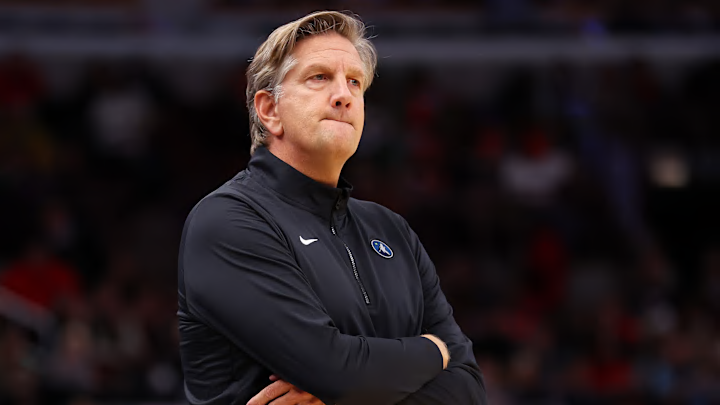The new CBA and apron rules have undoubtedly changed how teams are able to build their rosters. Recently, ESPN’s Bobby Marks wrote about how specific teams have been impacted by the second-apron restrictions, including the Minnesota Timberwolves, who were a second-apron team this past season.
"What the apron rules do to teams is force you to prioritize what players to retain and also put a greater emphasis on your former draft picks to play a greater role," an Eastern Conference executive told ESPN.
"In the case of the Timberwolves, there is now a greater emphasis on 2024 first-round draft picks Rob Dillingham and Terrence Shannon Jr. to be part of the rotation in the absence of Alexander-Walker." Bobby Marks of ESPN wrote.
While the Wolves are currently narrowly below the second apron, they still have one of the highest payrolls and have two open roster spots. The impact of the new CBA is already evident on the Wolves' roster building, and it will only become more noticeable.
The second apron has already impacted the Wolves
In the previous era, a team that just made two straight Western Conference Finals appearances would have likely re-signed Nickeil Alexander-Walker even if it meant committing to a high payroll. However, given how the apron hurts roster flexibility, this wasn’t prudent for Minnesota. As Marks notes, they are now counting on improvements from Dillingham and Shannon. Finding quality young players who can contribute immediately is even more vital with the new CBA.
Despite losing Alexander-Walker, the Wolves were able to re-sign Julius Randle and Naz Reid. Doing this in the apron era is a massive win for the Wolves, but they had to prioritize Randle and Reid over NAW. Keeping this talented core (mostly) intact gives the Wolves a solid chance to compete for a title.
Outside of this offseason, the Karl-Anthony Towns-Randle trade is another clear example of how the apron has already impacted the Wolves. KAT’s four-year $220 million contract was seen as particularly undesirable in the second apron era. Under the previous CBA, this deal likely wouldn’t have happened, especially given the Wolves' success in the 2024 playoffs.
The Wolves' future under the new CBA
Moving forward, the apron will continue to impact how the Wolves and other teams build their rosters. This offseason, the Wolves are likely to sign one more player to a minimum deal and leave a roster spot open for financial flexibility.
As mentioned earlier, young players like Dillingham and Shannon will be crucial for the Wolves this upcoming season and in the years to come. Rookie center Joan Beringer’s development will also be vital in the upcoming years.
Donte DiVincenzo is eligible for a contract extension; however, it’s unclear how much the Wolves will be able to afford to pay him. As a result, it’s possible the 2027 free agent doesn’t sign an extension and ultimately finds a new home in two summers. Much like Alexander-Walker, the Wolves’ belief in Dillingham and Shannon, paired with the apron restrictions, could determine DiVincenzo’s fate.
Rudy Gobert is another player who could be a victim of the second apron. The Wolves feel committed to a core of Anthony Edwards, Jaden McDaniels, Randle, and Reid. If they need to shed salary, Gobert feels like a clear candidate. At 33, his three-year $109.5 million contract is less than ideal. With Beringer’s upside, the Wolves could look to replace Gobert with him. Perhaps they trade Gobert before his contract is up in 2028. Alternatively, they might let him walk or re-sign him to a cheap deal in 2028.
The Wolves won’t be looking to trade one of McDaniels, Randle, or Reid. However, if they are underperforming and get a godfather offer for one of these players, they might have to consider it, especially if it gives them cap relief. This move is unlikely to happen next year or at all, but these future possibilities need to be considered in the apron era. Ultimately, in the new CBA, roster shake-ups will only be more common, and the development of young players will be even more vital.
